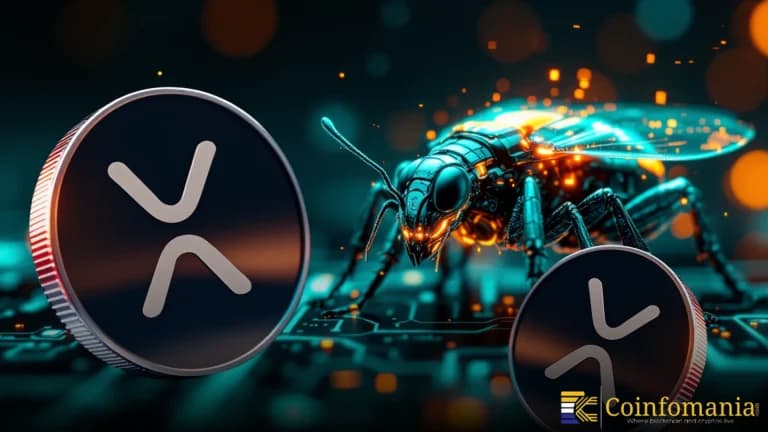Quack AI Launches as First AI Governance Layer on BNB Chain, Offering Custom Models, Delegated Voting, and Quackipedia Insights
Discover Quack AI Protocol’s role in automating governance on BNB Chain through AI agents, delegated voting, and more.

Quick Take
Summary is AI generated, newsroom reviewed.
Quack AI Protocol launched on BNB Chain, introducing AI-powered governance tools like delegated voting and real-time dashboards.
It supports different project types and allows compatibility with multiple blockchain platforms, including EVM, Solana, and TON.
AI agents and data tools are used to maintain participation levels and manage governance tasks without manual input.
On June 5, BNB Chain shared that Quack AI Protocol is now live on its network. This development brings features such as delegated voting and project dashboards for governance. The news follows an earlier update suggesting a new chapter for governance on the chain. It becomes the first AI-powered governance layer integrated with BNB chain dApp platforms. The initiative aims to improve automated decision-making and coordination for decentralized applications. Communities on the network may benefit from more streamlined governance processes overall.
Six Projects Integrate Quack AI on BNB Chain
The integration includes tools like AI-generated insights, voting delegation, and custom model configuration. These tools support projects based on tokens, NFTs, or hybrid governance models. Initial adopters include Mindnetwork, LiveArtX, SPACE ID, Fair3 community, Zypher Network, and StarryNift. These six projects plan to use the protocol for decision-making efficiency and transparency. By leveraging automated tools, they hope to reduce manual overhead within governance processes. The effort may serve as a case study for future BNB chain dApp governance solutions. Community feedback on these implementations will emerge in the coming months.
Quack AI Protocol differs from traditional frameworks by automating proposal evaluations and execution steps. It provides real-time voting functionality and manages treasury actions without manual oversight. The protocol’s architecture allows integration across several blockchain environments beyond BNB Chain. It supports EVM-based chains, Solana, and TON for broader adoption by diverse projects. This cross-platform capability aims to simplify governance integration across multiple ecosystems. Developers can build dApps that access intelligent voting tools across varied chains. Such flexibility may attract developers seeking adaptable governance solutions.
AI Governance to Reduce Delays and Improve Responsiveness
The protocol also introduces AI agents that vote according to user-defined strategies and rules. These strategies may include criteria like time-based restrictions or token dilution concerns. Automated agents replace inactive participants to ensure quorum and prevent governance stalemates. The system collects on-chain and off-chain data to inform decision-making and planning. Projects can shift from reactive governance to proactive, data-informed planning with these tools. AI governance tools may enhance efficiency by reducing delays and improving responsiveness. Early tests suggest these agents can reduce decision delays effectively.
Reward mechanisms are included to boost community engagement and participation in governance. Users contribute and may receive incentives such as token-based rewards or periodic airdrops. This approach aims to address low involvement that often plagues decentralized systems. An early case is DuckChain, which reportedly saw greater activity and external recognition. DuckChain was one of Quack AI’s first partners and it integrated AI agent voting and governance reward mechanisms through Quack AI. No detailed metrics were provided, but initial feedback suggests increased user engagement. Such incentives may encourage broader participation across BNB ecosystems.
How Quack AI Enables Voting Across Multiple DAO Platforms
The protocol’s scope extends to cross-chain collaboration between different DAOs and ecosystems. Its architecture enables intelligent voting delegation across multiple governance platforms and chains. For example, one organization could authorize Quack AI Protocol to vote in another DAO system. This meta-governance use case may improve scalability for projects with shared goals across chains. Such coordination can streamline decision-making for projects operating in overlapping ecosystems. Cross-chain support could foster new collaboration models among decentralized communities. Governance experts will monitor cross-chain interactions for potential complexities.
Widespread Adoption of AI May Shape the Future of Governance
Long-term impact will depend on technical robustness and widespread adoption across platforms. Ethical safeguards around AI decision-making are important to maintain community trust. As more DAOs consider integration, the influence of AI-powered governance will evolve over time. Broader tools like Quack AI Protocol may shape how decentralized communities coordinate decisions. Ongoing evaluation will reveal whether such systems improve governance efficiency or introduce new risks. The decentralized space may witness significant changes driven by these AI-based governance innovations. Community input will play an important role in shaping future governance frameworks.
References
Follow us on Google News
Get the latest crypto insights and updates.


